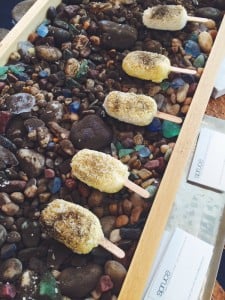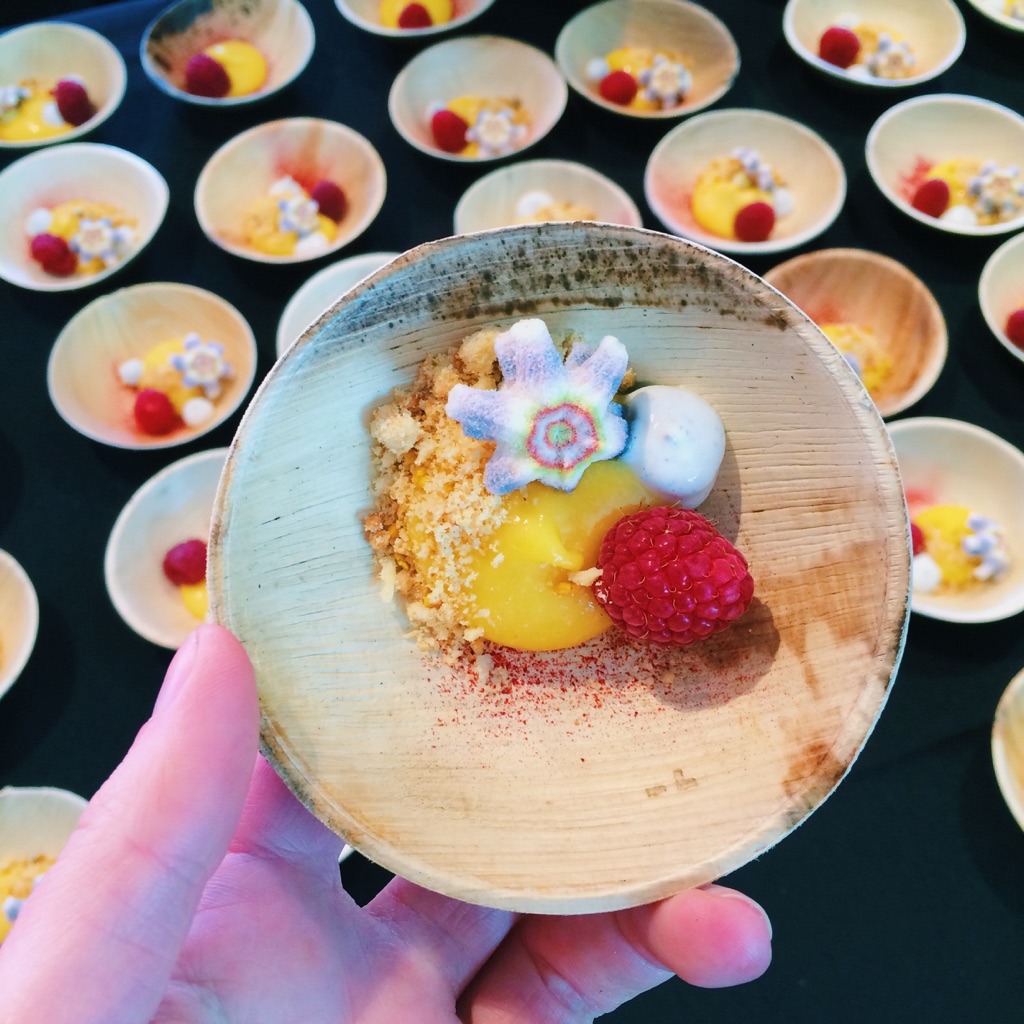Last weekend, a gastronomical affair hit Silicon Valley, as the food festival BITE Silicon Valley came to amaze everyone who was lucky enough to get a ticket. Restaurants from all over the Bay Area, from Palo Alto to San Francisco, offered a variety of unique and creative culinary delights.
Wineries from all over northern California presented their wines and offered everyone a taste to go with their food. From champagne served over ice to cabernet sauvignon, merlot and pinot grigio, every variety was there to be tasted and enjoyed.
Each of the dishes served at BITE was extremely creative and surprisingly inventive in its combination of flavors. The carrot puree with fermented curry, basil, peanut and shallot granola was bursting with spices that complemented each other perfectly. Corn ice cream covered in white chocolate and dusted in parmesan was an unexpected yet perfectly designed treat.

Some of my personal favorites were the chocolate and salted popcorn pot de crème from Mayfield Bakery, the lamb meatball slider filled with spiced yogurt and chutney from Dosa, the chocolate, coconut and macadamia tart from Craftsman Wolves and, even though I was stuffed after trying about 30 other things, the vegan cookie dough from Hampton Creek.
While the dishes were absolutely inventive and delicious, the food itself was not the primary aspect of BITE that blew me away. Coined a the place “where food and technology meet,” BITE showed how the spirit of innovation and invention, so characteristic of Silicon Valley, is changing the future of food and how we eat.
While BITE showcased exciting new food technologies such as 3D food printing, there was a special emphasis on new innovations that highlight the dynamic role food plays in our society, and the untapped power of food to be an agent of social change.
Some of the brightest and most influential social entrepreneurs in their fields attended BITE to discuss the future of food and sustainability. Tim Geistlinger spoke about creating the future of protein and his product Beyond Meat. This new vegetarian alternative provides incredible nutritional benefits without containing GMOs, animal fat, cholesterol, gluten or soy, and with minimal processing. It is also 35 times more land-efficient, 15 times more water-efficient, and seven times more feed-efficient to produce than its meat equivalent.
Renowned chef Jose Andres discussed his new solar oven, and its power to solve one of the world’s biggest environmental and health issues: classic open air-cook stoves, which pollute the air and damage the health of young women and children exposed to the smoke.
In addition to these speakers and many more, one of the most notable figures to speak at BITE was Robert Egger. Egger, a southern California native who firmly believes pureeing is the cooking technique of the future, showcases the epitome of food’s power to be an agent of social change through his work.
Robert Egger is redefining sustainable food practices, in more ways than one. Former president of DC Central Kitchen and founder of LA Kitchen, Egger has designed a culinary school that allows formerly incarcerated men and women to work side-by-side with youth aging out of foster care. Together, they learn to cook healthy meals that feed the elderly, while working to minimize food waste by using recovered fruits and vegetables from locally sourced suppliers.
But the work doesn’t end there; after the program, the culinary students are able to get jobs working in a variety of restaurants. In fact, an incredible 75 percent of the last graduating class of DC Central Kitchen got jobs on graduation day.
Egger notes a profound truth: Hunger is not about food. It is about inequality and waste. Through his work, Egger embodies his belief that neither food nor people should be wasted. LA Kitchen, opening in July, will soon be one of the biggest food hubs in America. Egger is bridging the generation gap and, as they work side-by-side, the older mentor the younger, each one inspiring the other.
Egger claims that there is nothing more powerful than watching the President of the United States cooking with an addict or someone who spent time in prison. As they stand side-by-side, the difference between them is erased, and it becomes clear that everybody has a role and is a valuable part of the community.
In addition to fostering these interpersonal relationships, helping the students get jobs and reducing food waste at his kitchens, Egger is dedicated to changing the way Americans view nutrition as well.
In order to influence Americans to eat healthy nutritious meals, we can’t be “nutritional imperialists,” trying to shove a specific view of healthy food down other people’s throats. It is about making small changes that add up in a big way, and the meals cooked at DC Central Kitchen and LA Central Kitchen reflect this idea in their use of unprocessed and ethnically diverse ingredients, alternate proteins and healthy remakes of classic favorites.
Egger offers extremely beneficial insight to the next generation of social entrepreneurs: Entrepreneurship is evolving from the service model to the empowerment model. As Egger states, “too often charity is about the redemption of the giver, and not about the liberation of the receiver.” With this in mind, we can orient ourselves to the future of social enterprise. Egger proves that true sustainability lies in investing in our community, in both its resources and its people. By doing so, we reinvest the profits back into growing and strengthening the community, while empowering and supporting the people.
Food has power. And as shown at BITE Silicon Valley, we have the power to be the next generation of innovators and creators, the generation that changes the way we eat, changes our environment and grows our communities and reaches a more sustainable future.
Contact Maggie Harriman at mpharrim ‘at’ stanford.edu.
